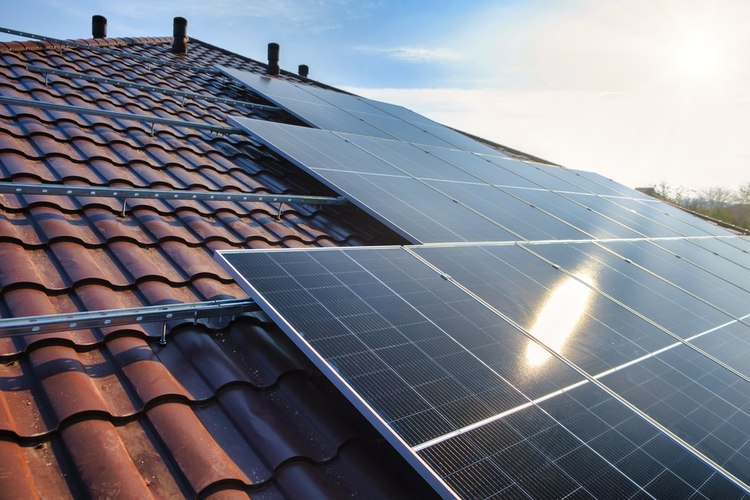Solar Water Heaters: Harnessing the Sun's Power for Your Home and Pool
Solar water heaters are an innovative and eco-friendly solution for homeowners looking to reduce their energy consumption and lower utility bills. These systems harness the sun's energy to heat water for various household uses, including domestic hot water and swimming pool heating. By leveraging renewable solar power, these systems offer a sustainable alternative to traditional water heating methods, making them an attractive option for environmentally conscious homeowners.

The efficiency of a solar water heater depends on factors such as the home’s location, available sunlight, and the system’s design. In most cases, a backup heating system is installed to ensure hot water availability during periods of low sunlight or high demand. This hybrid approach allows homeowners to enjoy the benefits of solar heating while maintaining a reliable hot water supply year-round.
Can solar panels heat a swimming pool effectively?
Solar panels can indeed heat swimming pools effectively, making them a popular choice for pool owners looking to extend their swimming season and reduce energy costs. Solar pool heating systems work by circulating pool water through a series of solar collectors, typically installed on the roof or in a nearby sunny area. As the water passes through these collectors, it absorbs heat from the sun before returning to the pool at a higher temperature.
The effectiveness of solar pool heating depends on factors such as the pool’s size, desired temperature increase, and available sun exposure. In many cases, solar heating can raise pool temperatures by 5-10°F (2.8-5.6°C) above the unheated water temperature, significantly extending the swimming season in many climates. Solar pool heaters are particularly efficient in areas with abundant sunshine and can often provide sufficient heating without the need for a backup system.
What are the benefits of installing a solar water heater on your roof?
Installing a solar water heater on your roof offers several advantages for homeowners:
-
Energy savings: Solar water heaters can significantly reduce your reliance on conventional energy sources, potentially lowering your utility bills by 50-80% for water heating.
-
Environmental impact: By using renewable solar energy, these systems help reduce greenhouse gas emissions and your overall carbon footprint.
-
Increased home value: Solar water heaters can be an attractive feature for potential buyers, potentially increasing your home’s resale value.
-
Long lifespan: With proper maintenance, solar water heaters can last 20 years or more, offering long-term savings and benefits.
-
Versatility: Solar water heaters can be used for various applications, including domestic hot water, space heating, and pool heating.
-
Low maintenance: Once installed, solar water heaters typically require minimal maintenance, making them a hassle-free option for homeowners.
What factors should you consider when choosing a solar water heater for your house?
When selecting a solar water heater for your house, consider the following factors:
-
Climate and sun exposure: Assess your local climate and the amount of sunlight your property receives to determine the system’s potential efficiency.
-
Available roof space: Ensure you have adequate roof space with proper orientation (typically south-facing in the Northern Hemisphere) to accommodate the solar collectors.
-
Hot water demand: Consider your household’s hot water needs to determine the appropriate system size and storage capacity.
-
Type of system: Choose between active and passive systems based on your climate, budget, and preferences.
-
Integration with existing systems: Determine how the solar water heater will integrate with your current water heating setup and any necessary modifications.
-
Local regulations and incentives: Research local building codes, permits, and available incentives or rebates for solar water heater installations.
-
Cost and return on investment: Compare the initial installation costs with potential long-term savings to assess the system’s financial viability for your situation.
How do solar water heaters compare to traditional water heating methods?
Solar water heaters offer several advantages over traditional water heating methods, such as gas or electric water heaters. Here’s a comparison of these systems:
| Aspect | Solar Water Heater | Traditional Water Heater |
|---|---|---|
| Energy Source | Solar (renewable) | Gas or electricity (non-renewable) |
| Operating Costs | Low | Higher, dependent on fuel prices |
| Initial Investment | Higher | Lower |
| Environmental Impact | Low carbon footprint | Higher carbon emissions |
| Lifespan | 20+ years | 10-15 years |
| Maintenance | Low | Moderate |
| Dependence on External Factors | Weather-dependent | Less affected by external conditions |
| Backup System Required | Yes, in most cases | No |
Prices, rates, or cost estimates mentioned in this article are based on the latest available information but may change over time. Independent research is advised before making financial decisions.
While solar water heaters typically have a higher upfront cost, their long-term energy savings and environmental benefits make them an attractive option for many homeowners. Traditional water heaters, on the other hand, offer more consistent performance regardless of weather conditions but come with higher operating costs and a larger environmental impact.
In conclusion, solar water heaters provide an efficient and eco-friendly solution for homeowners looking to reduce their energy consumption and carbon footprint. Whether used for domestic hot water, pool heating, or both, these systems harness the power of the sun to deliver long-term savings and environmental benefits. By carefully considering factors such as climate, hot water demand, and available roof space, homeowners can determine if a solar water heater is the right choice for their house and swimming pool needs.






